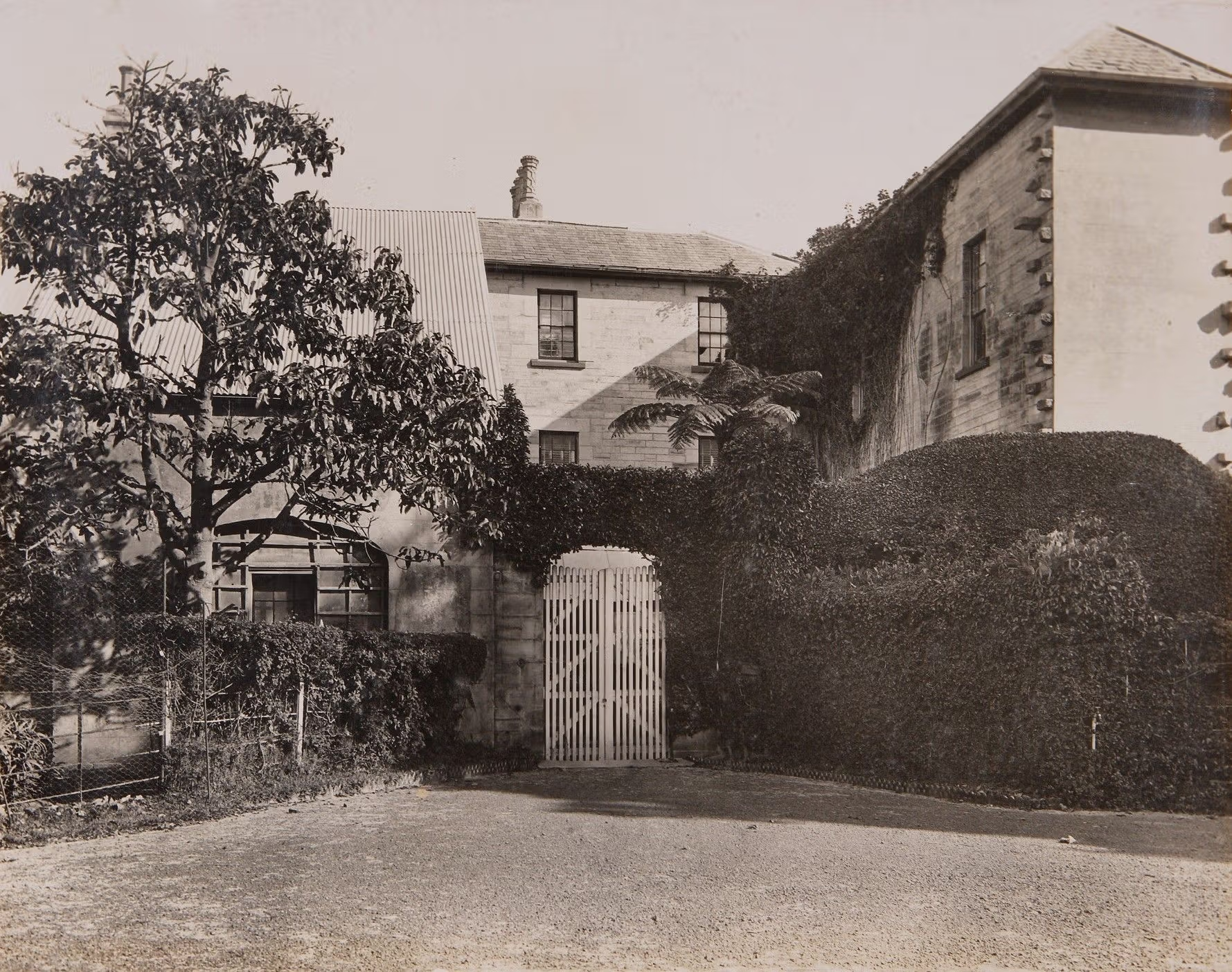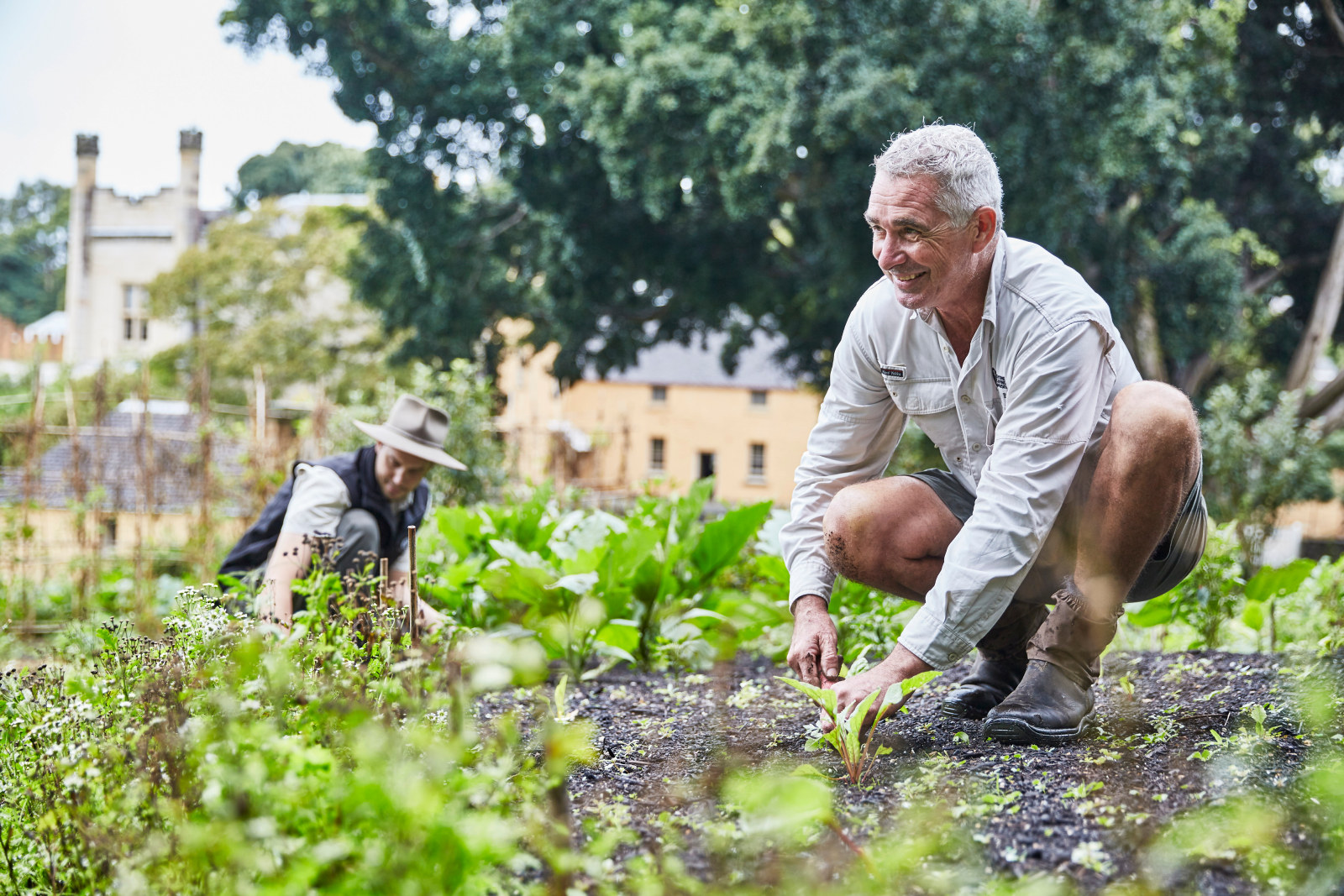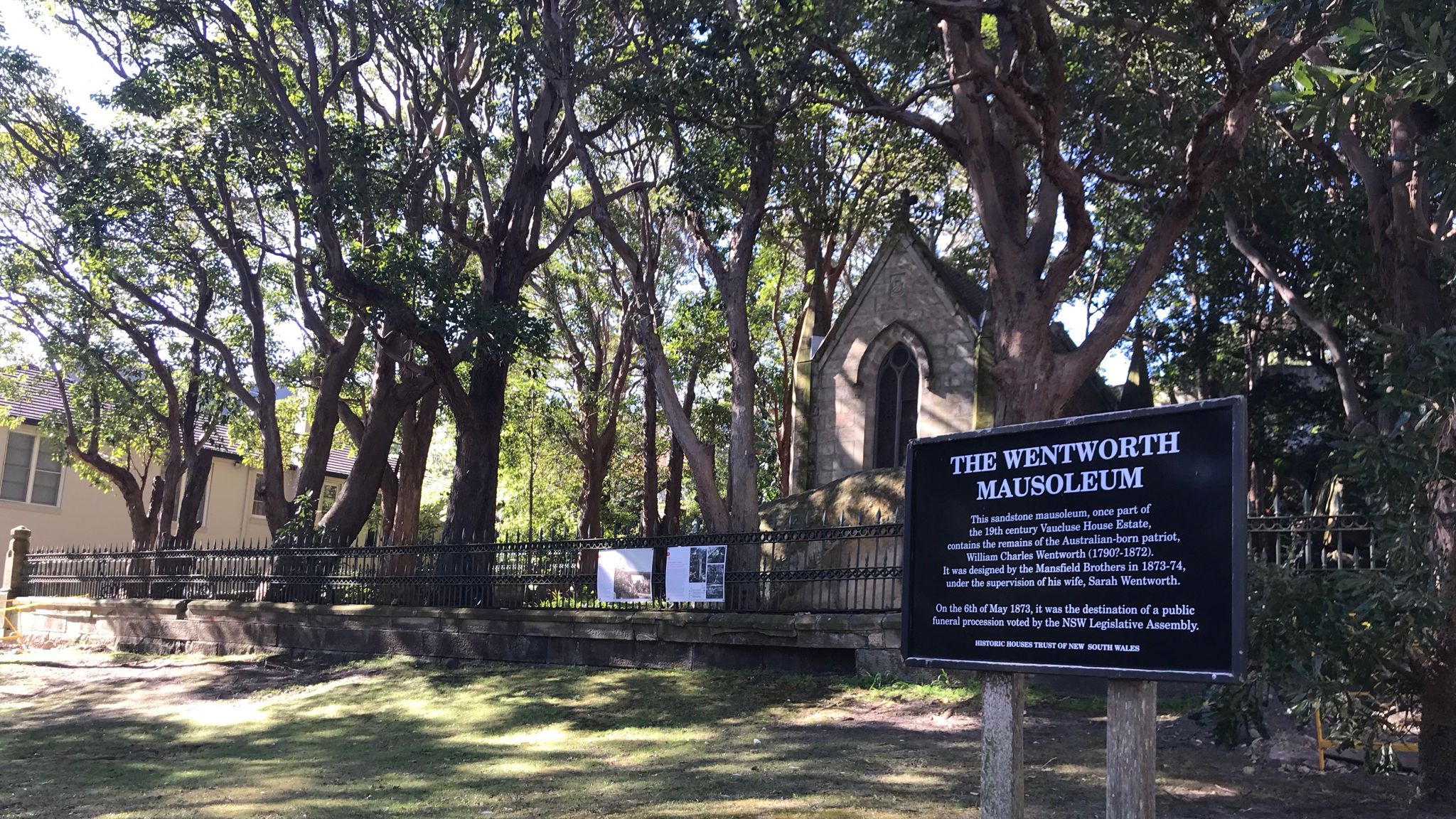Conservation in action: Vaucluse House ancillary buildings remediation
Museums of History NSW (MHNSW) is currently undertaking essential conservation works on the 1830s former store, laundry and water tank at Vaucluse House.
The masonry of these buildings has experienced considerable deterioration due to prolonged environmental exposure and rising damp. To address these issues, MHNSW has engaged specialist conservators to carry out desalination, mortar repairs and limewashing on all affected stone and brick walls.
Desalination will draw out and reduce harmful salts within the historic masonry. The limewashing process will reinstate the warm ochre tone of the walls by introducing a natural pigment brushed on in layers, then left to cure (dry).
The project also includes replacing the deteriorated pointing mortar between the stones and bricks with a traditional lime mortar, produced using kiln-fired shells and applied to joints with traditional tools. Evidence of the original lime mortar can still be found on site, notably in the remnants of the original cottage walls that are concealed within the walls of the Wentworths’ drawing room, built in the 1840s.
By fostering these heritage practices, MHNSW is not only safeguarding and conserving this historically significant masonry but also supporting the survival of valuable traditional trades, techniques and skills.
New interior fit-out for visitor entrance and shop
Following the completion of conservation works, a new fit-out will be installed inside the 1830s former store. The new fit-out will provide visitors with a welcoming space in which to meet our friendly staff, gain entry to the house museum, obtain information and explore a range of merchandise and souvenirs for sale.
The fit-out design respects the heritage fabric of the building and will allow for ventilation and inspections of the historically significant masonry to facilitate ongoing conservation. It will also open the view to the previously obscured fireplace.
Perforated metal screens will reference motifs from the distinctive black-and-white Italian tiles found throughout Vaucluse House, including in the kitchen and internal courtyard. The tiles are believed to have been purchased by William and Sarah Wentworth during their time in Europe in the 1850s.
The newly fitted out shop and visitor entrance are due to reopen to visitors in late September 2025.
Read more

Vaucluse House: preserving a grand harbourside estate
Located on the traditional Country of Gadigal and Birrabirragal people, Vaucluse House is a rare surviving 19th-century harbourside estate that retains much of its original setting, including its grounds and harbour frontage
Published on
Conservation at Vaucluse Estate

Conservation
Conservation in action: Vaucluse House waterfall, ponds and rill
The Vaucluse House Waterfall, Ponds and Rill Conservation Project will preserve the integrity and heritage significance of these important features of the estate. It was made possible by the generous support of the F&K De Angeli Foundation

Conservation
Vaucluse House kitchen garden
The Vaucluse House kitchen garden recently underwent a significant rejuvenation project to preserve the site and allow it to continue to be used as a valuable educational resource

Conservation
Wentworth Mausoleum perimeter fence conservation
MHNSW is undertaking the first comprehensive conservation works to the fence surrounding the 1870s resting place of William Charles Wentworth
